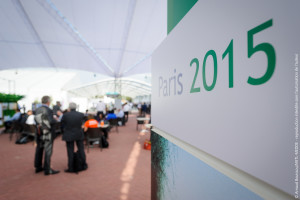By Tiffany Walker
The Paris Climate Talks are a policing tool within the UN Framework on Climate Change. Nearly 200 countries are in Paris attempting to broker a groundbreaking deal regarding climate change. The annual Conference of Parties (COP) is a review of the UN Framework’s application. COP21 has been in the news frequently over these past weeks because for the first time in 20 years of UN negotiations, such as the Paris Climate Talks, the aim is to achieve legally binding and universal agreement on climate. The overall aim is to keep global warming below 2°C.
The task of forging universal agreement on climate change action is an extremely difficult task given the timeframe; COP21 began 30 November and will end 11 of December. However, officials at the Conference are desperate. The greenhouse gas emissions that were covered by the Kyoto Protocol have increased by 80 percent since 1970. If the under global emissions continue, the rise in the average global temperature could come between 3.7°C and 4.8°C by 2100.
The two economic sections responsible for emitting the most global greenhouse gas are energy production at 35 percent and industrial production at 18 percent. Key negotiators have stated that the potential for a positive outcome of the climate talks is high. A researcher from the London School of Economics and Political Science stated that the world may be experiencing a tipping point in its use of coal, which is the largest contributor to climate change. More importantly, the economics behind coal use are in decline, while clean energy is becoming more competitive. The cost of solar energy in the United States has fallen by 70 percent since 2009.
These talks may be the world’s game changer. If the talks produce a positive agreement to limit greenhouse gas emissions, the earth might just be saved. If not, the world may face numerous natural disasters, food shortages, mass migrations, and resource competition.

